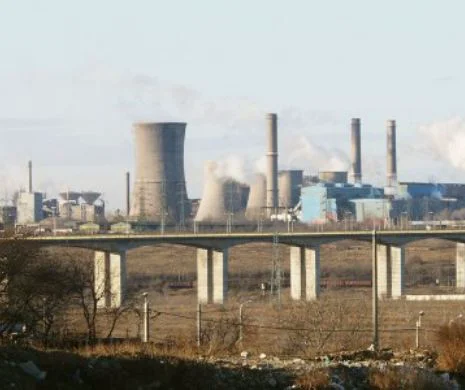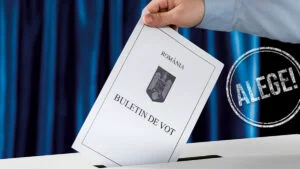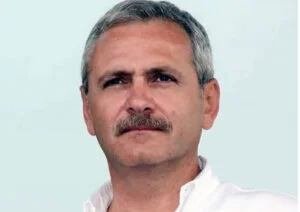15,000 employees of Sidex Galati thrown into unknown. EvZ-Capital investigation
- Sorin Andreiana
- 27 noiembrie 2018, 11:30

Nothing is clear about the Gupta family's past business with various authorities and private firms in Romania. The Indians, who are now on the brink of taking over Sidex Galaţi, a city-like plant, have managed to "hypnotize" everyone, but now, Sanjeev, the head of the family, worries even the great international analysts who ask themselves if the "steel man" does have “clay legs” in reality.
Over 15,000 Romanians are caught in the middle in a combination with which they should have no connection with. They and their families, perhaps more than 50,000 people, are part of a business imposed by Brussels bureaucracy and initiated in the misty financial world of London and Mumbai, India.
The Sidex plant in Galati, the farthest steel mill on NATO Eastern border, with more than 15,000 employees, has to be sold because its owner, Arcelor Mittal, has become too big for the taste of European bureaucrats. Mittal, one of the richest people in India, has to sell Galaţi because he wants to buy a plant in Italy, and European authorities say that if he keeps them both would become too big enough to threaten the fair competition on the market. And he found a buyer.
Another big family in India, the Gupta family. Merchants of anything, they have stand out in recent years, through spectacular metallurgical plants acquisitions, funded with huge loans, some of which have already been questioned. Capital and Evenimentul Zilei have already begun a series of investigations into the Gupta family business, which has been "sniffing" Romania for nearly 20 years, without leaving anything remarkable behind, except for promises as large as Sanjeev Gupta's reputation, the main man of Liberty House, the contender for Galaţi plant.
We have shown how they created big issues to a Swiss investment fund, whose money they invested in these bold businesses. We have shown how they lost credibility, including in India, their home country, and most importantly, we have shown how they promised 200 million euros in steel and ship investments in Oltenita and ended up managing 28 hectares of land bought not clearly how, a silo and two plantations of lavender and goji.
Now is the time to present the authorities' replies to Gupta's family history and intentions, as well as a new episode of what has already become a trend in the international financial press: telenovela "the Gupta road to nowhere". The European Commission is getting involved, but it does not get involved As we said at the beginning of the material, the source of the transaction between the Mittal family (Arcelor Mittal) and the Gupta family (Liberty House) for the Galati plant is the Brussels bureaucracy.
More specifically, the European Commission and its competition authority, which has decided that Arcelor Mittal can not buy the Italian Ilva (which Mittal hardly wants it) without divesting part of its other assets in Europe. This situation exists as the European Commission considers Arcelor Mittal would become to big to ensure a fair competition game in the European steel industry. And Mittal, present in several countries in the Union, chose to give up Sidex Galaţi, amongst aother plants.
This is what the representatives of the European Commission told us in a short answer to a few long questions that I have sent. "The decision to renounce the Galati steel works belonged exclusively to Arcelor Mittal. This measure is part of the commitments that the company has taken to ensure the legality of Ilva's acquisition.
It is also the exclusive attribute of Arcelor Mittal, the choice of the buyer for the Galati steel mill, "the representatives of the European Commission have told us. However, even if, as is normal, the current owner of Sidex is free to decide who he sells to, the same European rules say it is not necessary to find a questionable buyer, whose ability to keep promises are raising questions.
And the European Commission promises to watch over this. "Our role, to date, is to analyze how fit is the buyer chosen by Arcelor Mittal. The analysis procedure is undergoing and that is why it is too early to comment on the possible conclusions the Commission will draw”, the European Commission said. Very important, until the Commission takes a decision, everything that happens in Galaţi is the exclusive responsibility of Mittal as if the Commission were to reject the sale to the Gupta family.
These are the only responses handed over by the European Commission to Capital and Evenimentul Zilei, although our questions covered a much wider area.
Here they are: - How can the European Commission ensure that the promises in Galaţi are real this time?
- Can European authorities force the buyer to corporate transparency, given the strategic importance of this acquisition?
- How can the European Commission safeguard the soundness of the investment, bearing in mind that the Gupta Group has a high degree of indebtedness and access to financing seems problematic?
- How can the European Commission ensure the buyer's ability to ensure uninterrupted production in the event of deterioration in market conditions?
- Can the European Commission validate Gupta's ability to deliver the investment plan to 50% increase in production capacity and restart a furnace?
If this plan is unsuccessful, does the plant close? Nothing in the steel industry, just trading and scented lavender land. Are the Romanian authorities hiding something? Almost 20 years have passed since the Gupta family arrived in Romania. It is almost not so important that the head of family, Sanjeev, now tries to say, hypocritically and predictably, that he has no idea about the businesses his brother has been doing in Romania.
Importantly, since 1999, the Gupta family has done nothing remarkable. It had a minimum of four employees and a maximum of 50, which is registered for only two years. Moreover, according to the answers provided by Capital and EVZ by the current Authority for the Administration of State Assets (AAAS), the former Authority for State Assets Recovery (AVAS), the Indians did not even buy a metallurgical business in Oltenita in the true sense of word and no shipyard, as they argued.
All they took was the land, then turned it into arable land and space for silos. In particular, quoted by Capital and EVZ in connection with the privatization of Turol (the former metallurgical plant Oltenita) and Navol (the former shipyard), AAAS does not mention a word about Transdanube or Evergreen, those companies who have taken possession of the land and facilities of the two companies.
Even though Transdanube and Evergreen, both controlled by the Gupta family, are known in Oltenita as the owners of the two companies, in which they promised to invest over 200 million euros. If it does not hide anything, AAAS indicates that both Turol and Navol have gone through failed privatization processes with investors in Romania, and then went into liquidation. So the firms themselves could no longer be sold to the Indians.
Please note that we have sent explicit questions about Trasdanube and Evergreen, Turol and Navol, asking for price and sales conditions. What we received were answers regarding other buyers, arrived, like Turol and Navol in liquidation. Turol, says AAAS, was privatized in 2004 with an association between Timpuri Noi Company in Bucharest and an association of employees of the plant, which owned the shares issued within the framework of the former Mebo program.
The conditions imposed on the buyer were to invest 2.5 million euros for development in five years, and to bring a working capital of 40,000 euros plus greening investments of just over 5,000 euros. As these buyers only came with the 40,000 for working capital, the contract was broken by AVAS.
According to the official regulations, Turol has become radiated, so you can not buy it by the Indians. In the case of Navol, the former shipyard also came to the Gupta family, the privatization was done with businessman Ioan Alexandu and, for reasons similar to those leading to the breaking of the contract for Turol, AVAS became a shareholder and then the company came to liquidation and was radiated.
A silo and dozens of question marks. Metalurgists-farmers have forgotten to answer us We told you in past materials that we were in Oltenita and we found, instead of the rolling mill and the promised shipyard, a plantation of lavender and goji. What I have not told you so far has been that I have obtained through the intermediaries the promise of the Romanian director of Evergreen, a company controlled by the Indians administering the remnants of the Turol plant, that they will answer some questions I have sent by e- mail.
Even today, a few weeks after the discussion, we did not receive an answer, and the company's representatives could no longer be contacted. In any case, from the spot, we were able to find out, incidentally, an extremely important thing. Not even the lavender business, which has risen in the place of the combination, does not bring new jobs. Those who work extra there are all employees of the silo in the harbor, virtually the only business that is of interest to the Indians.
These are not very many, their number varying between 40 and 60, annually, as we have learned from Oltenita. As an idea, when the Indians entered the remains of Turol and Navol, they worked there. Another 200-300 people, guarding and maintenance. Moreover, another question mark I tried to remove with the e-mail message is that although it has been cultivating lavender and goji for two years, Evergreen has not sold anything so far, and promises to make a refinery for the production of lavender oils, although they did not want to allow us to visit the site of it. In fact, no one knows for sure whether this refinery is being built or not.
Last but not least, according to their own statements, Evergreen has invested about 10 million euros in greening a part of the land where it is now lavender and where it had previously been a highly polluting thermal power plant. What would be the notion of such a huge investment in greening and why, on such a deeply hydrocarbon-leveled earth, would one like to make organic farming? And if you're doing organic farming, why not sell the products you've made? Is there, in the end, the rolling mill? If not, why should you keep a metallurgical engineer in a farming company? There are questions that have been left unanswered, because the people at Evergreen have changed their minds as fast as we promised maximum transparency. Too many scammers for magician Gupta?
It also lends from the great rivals Almost every week, for months, the international press raises questions about the Gupta family business. Analysts of major international publications are finding it hard to believe that a business focused exclusively on commerce with various goods has naturally come to make headlines in the metallurgical industry, a totally different field. Because Liberty House, the Gupta family, has really made headlines, and in just a few years it has attracted the nickname “savior of the metallurgical industry in England”.
Where did the money came from in reality? Can they manage it all? These are the questions the international press is asking. Recently, the Financial Times was worried as Gupta has too many "plates" to spin. FT recalls that in just three years Gupta built a metallurgy empire on 5 continents, $ 15 billion in revenue and 14,000 employees. The same prestigious financial journal, however, shows that there are more and more signs that Gupta has problems with liquidity.
With a tremendous indebtedness, the level of debts far exceeds the annual income, it is unclear how likely is for Gupta to access banks, and his gestures betray some stress, in this regard. For example, FT reminds, to buy the Dunkirk smelter, Gupta headed to its metallurgical competitors for a $ 160 million loan. It was a move that made financial analysts wonder, as such a purchase can be easily funded by banks, whether Gupta is solvent.
And the loan came just when the GAM fund, which we wrote about, is approaching liquidation due to Gupta's directed investments. A Liberty House spokesman denied the allegations that the company would no longer be able to access the classic funding channels, but the questions remain valid.








